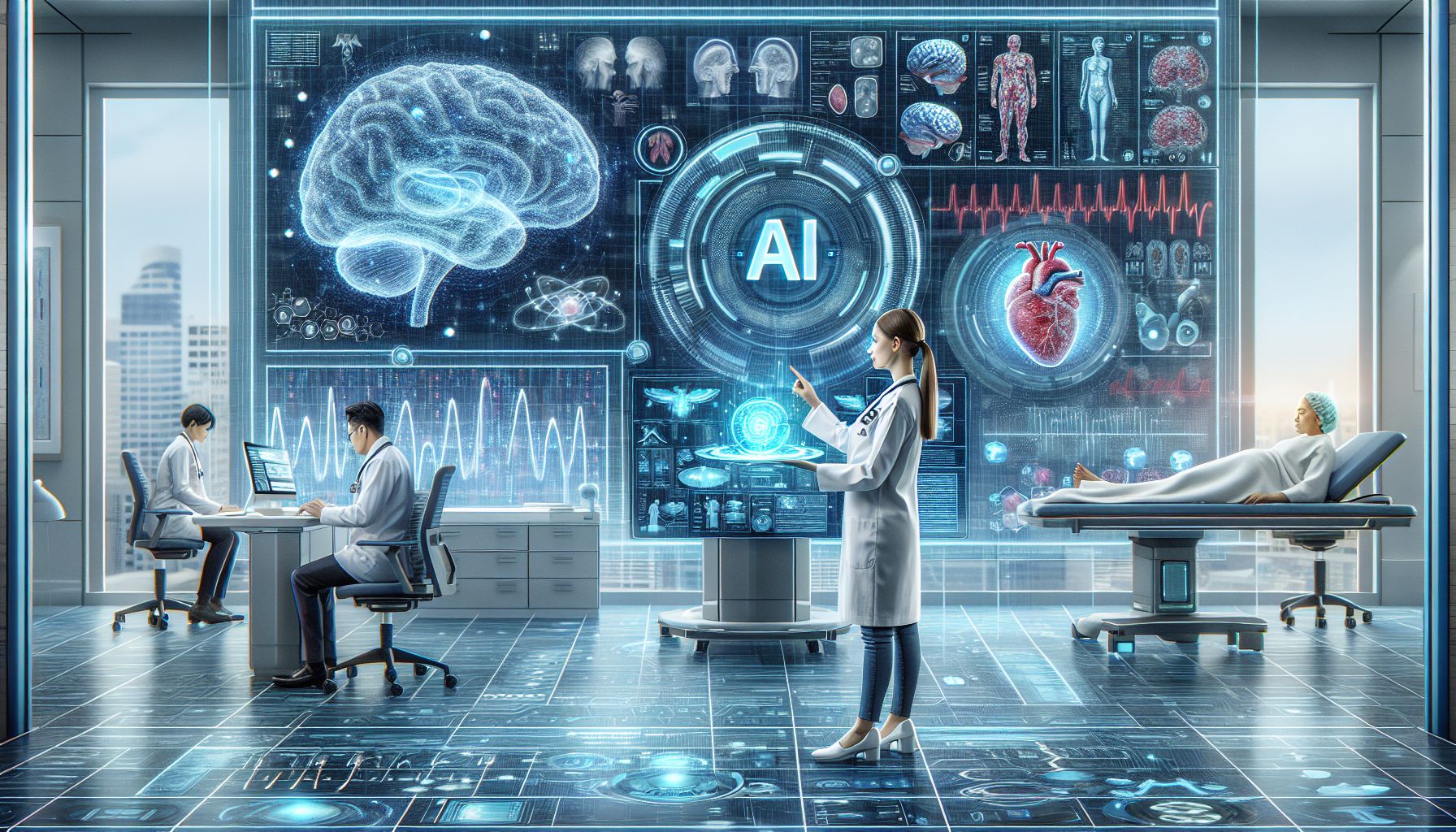📌 Let’s explore the topic in depth and see what insights we can uncover.
⚡ “Imagine a world where your doctor’s appointments are led by AI, diagnosis errors are significantly reduced, and treatment plans are personalized down to your DNA. Welcome to the future of medicine, where artificial intelligence is revolutionizing healthcare.”
The landscape of healthcare is consistently evolving. Over the past few years, one particular development has consistently made headlines and piqued the interest of researchers, healthcare practitioners, and patients alike. The development in question is none other than the revolutionary field of Artificial Intelligence (AI). AI, once a realm of science fiction, has quickly found its footing in our everyday lives, from Siri on our iPhones, to the way Netflix recommends our next binge-watch. But, its penetration into the healthcare sector is not just transformative, it’s revolutionary. As the world of medicine eagerly embraces the possibilities of AI, we are moving towards unlocking a myriad of potential benefits and reforming healthcare as we know it. In this blog post, we will take a deep dive into the fascinating world of artificial intelligence in healthcare. We’ll explore what it is, how it’s being used, the benefits it offers, and the potential challenges that lie ahead. So, buckle up for a ride into the future of medicine! 🚀
🧠 Artificial Intelligence: A Quick Primer

"AI: Revolutionizing Healthcare, One Algorithm at a Time"
Before we delve into the nuances of AI in healthcare, it’s important to understand what we mean when we talk about artificial intelligence. In simple terms, AI is the simulation of human intelligence processes by machines, particularly computer systems. This involves learning (the acquisition of information and rules for using the information), reasoning (using rules to reach approximate or definite conclusions), and self-correction. AI can be categorized into two types - narrow (or weak) AI, which is designed to perform a narrow task, and general (or strong) AI, which performs any intellectual task that a human being can do.
💊 AI and Healthcare: A Match Made in Medicine
The integration of AI into the healthcare sector is a frontier that promises improved outcomes, increased efficiency, and revolutionary changes in how we diagnose and treat illnesses. Here’s how AI is transforming healthcare:
Predictive Healthcare
AI algorithms can analyze vast amounts of data to predict the likelihood of disease in individuals or populations. This allows for early intervention, potentially changing the course of the disease before it takes hold.
Precision Medicine
AI can help in tailoring treatment plans to individuals based on their unique genetic makeup, lifestyle, and environmental factors.
Improving Diagnosis
AI can enhance the speed and accuracy of diagnosis. Machine learning algorithms can help interpret imaging scans, pathology slides, and genetic tests, sometimes with more accuracy than human doctors.
Enhancing Patient Experience
AI can streamline administrative tasks, speeding up the process for patients and reducing the burden on healthcare professionals.
Drug Discovery
AI can significantly speed up the process of drug discovery, potentially saving countless lives.
🎯 The Benefits of AI in Healthcare
The utilization of AI in healthcare offers a host of benefits. Here are some of the most significant:
Improved Patient Care
AI can enable healthcare providers to offer more accurate, timely, and effective patient care.
Cost Reduction
By automating routine tasks, AI can reduce healthcare costs and make services more affordable for patients.
Increased Accessibility
Telemedicine powered by AI can provide healthcare services to remote areas, improving the accessibility of medical services.
Data Analysis
AI can analyze complex medical data to identify trends or risk factors, aiding in disease prevention and health promotion.
Efficiency
AI can streamline administrative tasks, freeing up healthcare professionals to focus on patient care.
🚧 The Challenges and Ethical Considerations
Despite the promising potential of AI in healthcare, there are several challenges and ethical considerations that need to be addressed:
Data Privacy
The use of AI involves handling large amounts of sensitive patient data, raising concerns about data privacy and security.
Algorithm Bias
AI algorithms are only as good as the data they are trained on. If the training data is biased, the AI will also be biased, potentially leading to unfair health outcomes.
Regulation
The rapid development of AI technology poses a challenge for regulatory bodies to keep pace and ensure patient safety.
Ethical Considerations
📎 You’ll find that ethical issues around the use of AI in healthcare, such as the potential for job loss among healthcare workers and the depersonalization of care.
🧭 Conclusion
The integration of artificial intelligence in healthcare represents a seismic shift in the way we approach medicine. From predictive healthcare and precision medicine to improved diagnostics and enhanced patient experience, the potential benefits of AI are immense. However, it’s important not to overlook the challenges ahead. Issues around data privacy, algorithm bias, regulation, and ethics need thoughtful consideration and proactive measures. AI in healthcare is not a silver bullet, but it certainly is a powerful tool that, if used responsibly, can revolutionize the future of medicine. As we continue to explore this exciting frontier, there is no doubt that we are on a path to progressive medicine. Let’s embrace this journey with optimism and vigilance, as we shape a future where technology and healthcare come together to create a healthier world. 🌍
🌐 Thanks for reading — more tech trends coming soon!
